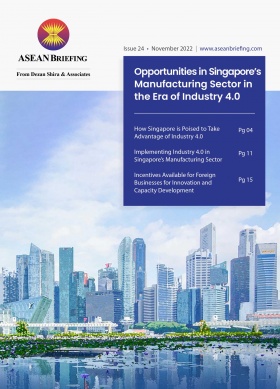New Stricter Requirements for Singapore’s Global Investor Program
Singapore has increased the investment requirements for foreign investors to join the Global Investor Program. Investors are also required to hire more local workers to qualify for the scheme.
Singapore has placed stricter investment requirements for foreign investors seeking to participate in the country’s Global Investor Program (GIP). The scheme was introduced in 2004 by the Economic Development Board (EDB) and is one of the preferred routes for foreign investors and their families to obtain permanent residency status in Singapore. The EDB is a statutory board under the Ministry of Trade responsible for executing strategies that sustain Singapore’s status as a leading global hub for investment and business.
To qualify for the GIP scheme, applicants must apply to one of these three investment options:
- Investing at least S$2.5 million (US$1.8 million) in a new business entity or an expanding existing entity in Singapore;
- Invest S$2.5 million (US$1.8 million) in an EDB-registered GIP fund that invests in Singaporean businesses; or
- Invest S$2.5 million (US$1.8 million) in a new or existing Singapore-based family office having assets under management of at least S$200 million (US$148 million).
The EDB recently announced several changes to the scheme by raising the required minimum investment. This is with the aim to attract ‘top-tier investors’ who can make a significant economic impact in Singapore and support the local start-up ecosystem as well as the broader financial sector.
Further, there are also changes to the conditions of investors’ re-entry permits as well as to the number of local employees that investors must hire.
According to the Ministry of Trade, the Global Investor Program has created more than 24,000 jobs in Singapore between 2011 to 2022 and has generated more than S$5.46 billion (US$4 billion) in business expenditure. Moreover, between 2020 and 2022, a total of 200 investors gained permanent resident status through the scheme.The changes will come into effect from March 15, 2023.
Increased investment requirements for Global Investor Program applicants
The EDB has increased the required investments for some of the investment options for applicants of the Global Investor Program.
Applicants that choose option A will now have to demonstrate an investment of at least S$10 million (US$7.4 million) in a new or existing business in Singapore. This is inclusive of paid-up capital. Further, the requirement to have a total business expenditure of S$2 million (US$1.4 million) has been removed. This is because the focus of the changes is to create high-value jobs for Singaporeans, which would lead to more business expenditure.
Applicants choosing option B will now need to invest at least S$25 million (US$18.5 million) in a GIP-selected fund. These funds will be shortlisted by the EDB based on their investment track record and the type of industries they focus on. The funds will likely comprise of venture capital funds that already have a significant presence in Singapore.
Under the new changes, investors that choose option C are now required to establish a Singapore-based family office with assets under management of at least S$200 million (US$148 million). At least S$50 million (US$37.1 million) must be deployed in any of these four investment categories:
- Singapore qualifying debt securities;
- Private equity injection into non-listed, Singapore-based businesses;
- Companies listed on exchanges licensed by the Monetary Authority of Singapore; and
- Funds distributed by Singapore-licensed fund managers.
New conditions for the renewal of re-entry permits
Before the amendments, a successful Global Investor Program candidate would be issued a re-entry permit for five years upon the approval of their permanent residence. This re-entry permit enables the holder to retain their PR status while traveling in and out of Singapore.
The renewal criteria involved hiring a minimum of 10 people with at least half being Singaporeans by year five of the investors’ permanent residency status, in addition to incurring at least S$2 million (US$1.4 million) in business costs.For investors choosing option A, they must now employ at least 30 employees, of which at least 15 must be Singaporean citizens. Of these, 10 must be incremental hires.
For those investing in GIP-selected funds, the investor must now maintain their investment in the GIP-selected fund to obtain their re-entry permit.
Finally, for investment option C, investors must hire at least five family office professionals, including at least three Singaporeans, and are required to maintain at least S$50 million (US$37.1 million) in any of the four investment categories throughout the five years after obtaining their permanent resident status.
The requirement to have a total business expenditure of S$2 million (US$1.4 million) has been removed.
About Us
ASEAN Briefing is produced by Dezan Shira & Associates. The firm assists foreign investors throughout Asia and maintains offices throughout ASEAN, including in Singapore, Hanoi, Ho Chi Minh City, and Da Nang in Vietnam, in addition to Jakarta, in Indonesia. We also have partner firms in Malaysia, the Philippines, and Thailand as well as our practices in China and India. Please contact us at asean@dezshira.com or visit our website at www.dezshira.com.







